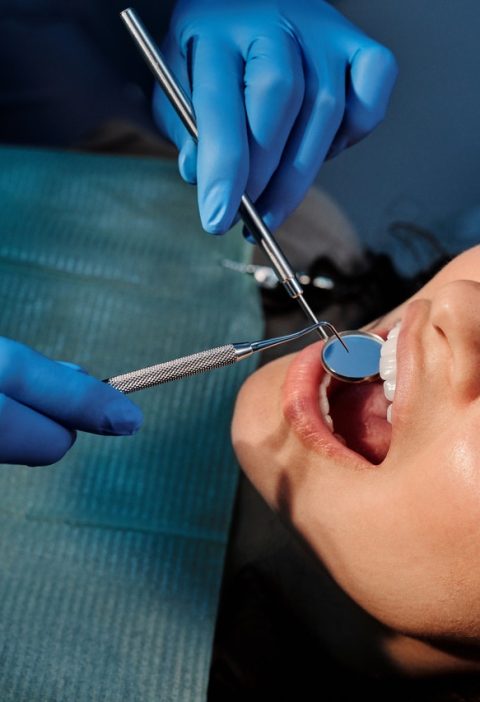The decision to adopt or buy a pet is one that brings joy and companionship. However, it also comes with very real responsibilities, including the protection of your pet’s health. One of the critical ways to keep your pet safe is through vaccinations. This process introduces a vet-approved agent into the pet’s body, stimulating its immune system and creating an efficient defense against diseases.
The practice of pet vaccinations is essential in guaranteeing a safe, lengthy, and delightful life for your pets. In the following sections, we’ll extend our discussion into why pet vaccinations are needed and their pivotal role in veterinary medicine.
Getting a Grasp on Pet Vaccinations
Cats, dogs, and other pets face a multitude of ailments that can be easily prevented with the right vaccinations. Understanding these could be the difference between a measly sick day and an unfortunate visit to the vet.
What is a Vaccination?
Vaccinations work as a healthcare strategy wherein a vet introduces safe and controlled forms of diseases into an animal’s system, prompting the immune system to respond. It’s a proactive approach to equip your pet’s body with the antibody soldiers it needs to combat the disease invaders, should they ever attack. Happily, we have access to robust pet vaccinations in Union City, TN, where several pets enjoy inoculated protection.
Importance of Pet Vaccinations
Vaccinations enable pets to develop immunity to a range of grave diseases, such as canine distemper, feline leukemia, and kennel cough. They drastically reduce the risk of illness and ensure your furry pals stay healthy.
Pet Vaccination Schedule
There’s a schedule for vaccinations that vets propose based on numerous factors, such as the pet’s age, health status, and lifestyle. These schedules typically begin when your pets are just puppies or kittens and continue into their adulthood. Following these calendars helps establish a robust immunity in your pets.
Types of Vaccinations for Pets
Depending on the region and lifestyle of your pet, there are various vaccinations available. Some, like rabies, are required by law, while others depend on the environmental risks your pet might face.
Newborn pets have some protection passed on from their mothers, but this wears off over time. To ensure they stay healthy, kitten and puppy vaccinations begin at around six to eight weeks of age. From that point forward, they are given every two to four weeks until they’re 16 weeks old, creating a secure preventative shield against diseases for your new furry family member.
Risks Associated with Dog and Cat Vaccinations
Like any medical treatment, vaccinations carry some risks. Vaccinated pets can sometimes exhibit mild symptoms such as fever, decreased appetite, and discomfort at the injection site. However, severe reactions are scarce. Remember, the benefits outweigh the risks when it comes to defending your pets from life-threatening diseases.
Vaccine-Preventable Diseases in Pets
A large number of diseases that dogs and cats can catch from the environment or from networked pets are preventable. Regular vaccinations are crucial in keeping your pet free from these diseases and ensuring your home remains a secure sanctuary for your pets.
Exploring the Sphere of Pet Orthopedics
Our four-legged friends can sometimes be bothered by orthopedic problems that involve their bones, joints, and muscles. Noticing these issues early with the assistance of a capable orthopedic vet can be crucial in positively impacting our pet’s quality of life.
Pet Orthopedic Symptoms
Animals are masters at hiding pain, so the signs of orthopedic difficulties can be subtle. Watch for any changes in your pet’s behavior or mobility pattern, including limping, difficulty moving, or loss of appetite. Should these symptoms persist, it’s advisable to get your pet examined by a vet.
Treatments in Pet Orthopedics
There are numerous treatment options for orthopedic issues in pets, ranging from non-surgical therapies like medications and physical therapy to surgical interventions. The chosen treatment will depend on the exact condition, its severity, and the overall health of your pet.
Orthopedic Surgeries for Pets
Sometimes, orthopedic conditions in pets call for surgical intervention. Common surgeries include fracture repairs, cruciate ligament repairs, and hip replacements – all aimed at rectifying the problem and alleviating pain.
Dedicated orthopedics care can drastically improve your pet’s quality of life. It can enhance their mobility, eliminate or alleviate pain, and allow them to lead more pleasurable lives.
Common Orthopedic Conditions in Dogs and Cats
Orthopedic disorders can vary significantly. Some common ones in pets include hip dysplasia, elbow dysplasia, fractures, and anterior cruciate ligament (ACL) injuries.
Understanding the Array of Vet Services
Veterinary services and care are as diverse as the number of possible health problems faced by your pet. More than just treating illnesses and injuries, these services range from preventive measures to emergency care, making sure that both dogs and cats can live healthily. Therefore, choosing a reliable puppy vet at Reelfoot Animal Hospital ensures that your pets are always in safe hands.
- Pet Health Services: Veterinary health services cater to all aspects of your pet’s well-being. They encompass preventive care, diagnosis and treatment of illnesses, chronic disease management, and palliative care.
- Choosing a Veterinarian: The selection of a veterinarian is a significant decision for every responsible pet owner. Considerations like the vet’s qualifications, experience, available services, location, and affordability all factor into the decision, ensuring you choose the right hands to trust your pet’s health with.
- Cost of Vet Services: The cost of vet services can vary depending on the type of service, the health of your pet, and where you live. It’s crucial to understand these costs upfront and navigate them wisely.
- Emergency Vet Services: Just like people, pets can face health emergencies. For these unfortunate incidents, emergency vet services offer immediate and potentially life-saving care.
- Preventive Vet Services: Prevention is often better than cure when it comes to your pet’s health. Regular vet visits, vaccinations, and preventive treatments can often avoid more serious health complications down the line.
- Specialty Vet Services: Sometimes, pets may need specialized care based on their individual health needs. Specialty vet services like dermatology, ophthalmology, oncology, orthopedics, and others are all designed to provide this targeted care.
- Mobile Vet Services: Some pets may feel nervous or anxious about visiting the vet. For those furry friends, mobile vet services can come as a blessing, delivering professional veterinary care right to your doorstep.
- Affordable Vet Services: Good vet care needn’t always burn a hole in your pocket. In fact, there are plenty of affordable vet services designed to provide excellent care at considerate rates. These services ensure that the health needs of your pets are never compromised due to financial constraints.
- Importance of Regular Vet Check-ups: Your pet’s regular health check-ups are just as important as your own. Not only do these checks keep you updated about your pet’s health, but they also help in early disease detection and prevention, leading to timely interventions and better health outcomes.
Navigating your responsibilities as a pet parent may feel daunting at times, yet it’s essential to remember the happiness and companionship these pets bring into our lives. Ensuring their health through vaccines stands as a critical step in maintaining our bond with them, protecting against illness, and optimizing their quality of life.
Conclusion
Simultaneously, being vigilant about potential orthopedic diseases helps detect and tackle them in time, preventing undue suffering for your pets. Grasping the expansive world of vet services allows you to better care for your pets, fulfilling their unique healthcare needs. It’s safe to say that knowledgeable, responsible pet ownership plays a significant role in nurturing healthier, happier pets and, by extension, happier households.







